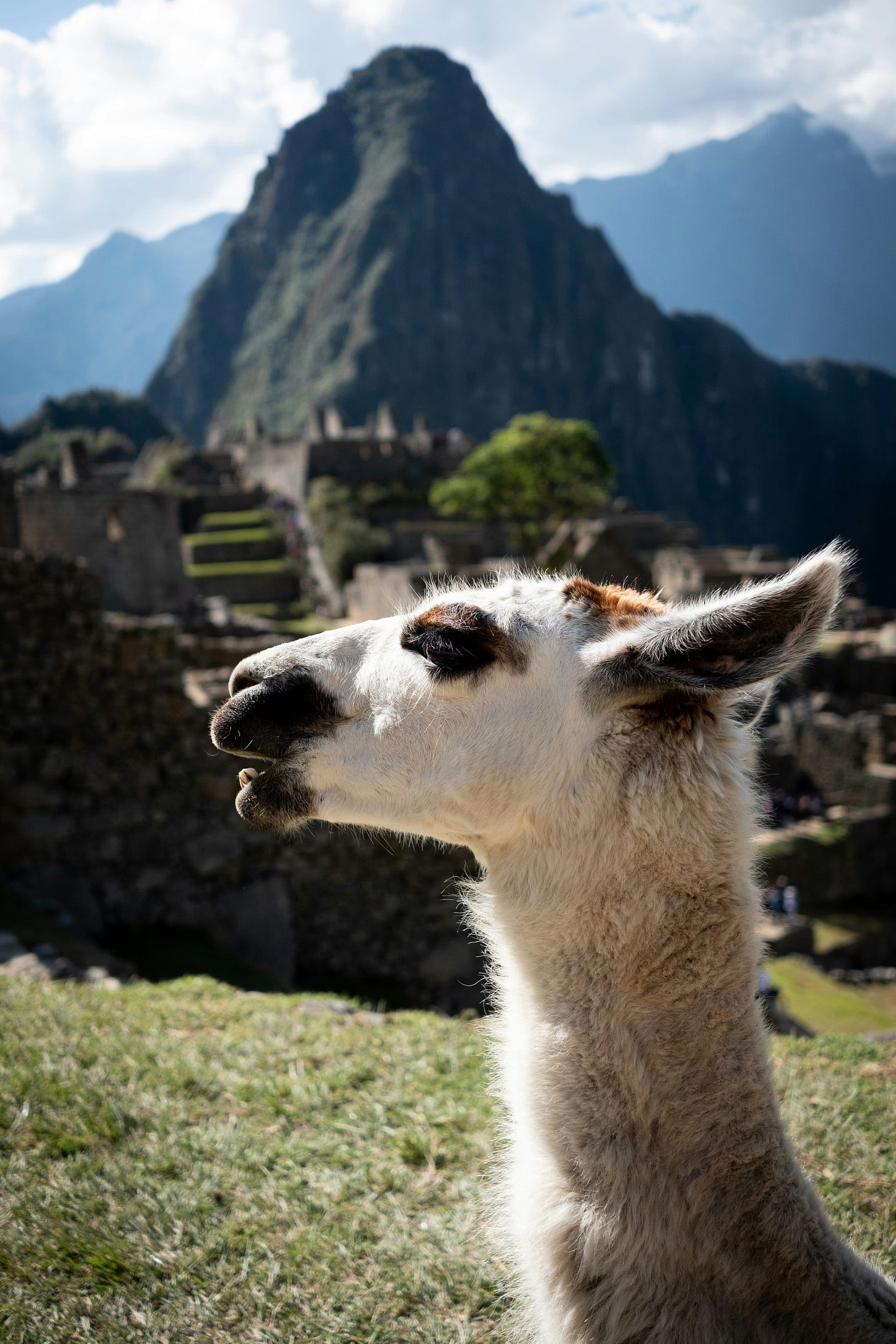All Roads Lead to Rome
What a Harvard rejection, a Peruvian village, and an ancient myth taught me about fate

A lot is being written lately about Pope Leo XIV, the first American Pope. But there’s a lesser-known detail that caught my attention: as a young man from Southeast Chicago, Robert Francis Prevost was accepted to Harvard Law.
Harvard, the gold standard of worldly success. For a working-class kid, it must have seemed like a dream so far-fetched it bordered on fantasy. Acceptance alone is often enough to rewrite a person’s trajectory. Harvard opens doors that stay closed for most. It guarantees a kind of currency: access, prestige, a seat at almost any table.
And yet, Prevost walked away.
He didn’t just choose a different path; he chose an opposite one. He joined the Augustinian order, took a vow of poverty, and moved to Peru. Not to Lima or Cuzco, but to remote mountain villages where infrastructure was scarce and recognition even scarcer. It was a move that, on paper, should have led to a quiet life of anonymity. But somehow — improbably, almost mythically — it led him to the balcony of the Vatican.
He didn’t network his way to the top. He didn’t optimize his resume. He didn’t “build a brand.” He said yes to what called him, and that yes shaped a life no one, including him perhaps, could have predicted.
It reminds me of another story. One whose significance we often misunderstand.
Oedipus.
His name is now mostly associated with Freud, but the original myth is not about pathological love, it’s about fate. Oedipus’s father, King Laius of Thebes, was told by an oracle that his son would one day kill him. So, in an attempt to outmaneuver destiny, the king abandoned his newborn to die. But the baby was spared, raised by a poor family who had no idea of his royal lineage. One day, years later, Oedipus killed a stranger on the road in a fit of anger, not knowing it was his father. Ironically, it was Laius’s attempt to escape the prophecy that set it in motion. In trying to outmaneuver fate, he walked straight into it.
It’s a brutal myth. But beneath it is something oddly comforting:
What is meant for us will find us.
Not through force. Not through control. But sometimes in spite of our best-laid plans.
I’m not suggesting Pope Leo was trying to avoid power the way Oedipus’s father tried to avoid death. But I do think there’s something sacred in his surrender. A willingness to follow a quieter calling, to disappear into a life that looked like obscurity and to trust that the path would take him where he was meant to go.
How many of us spend our lives playing chess with ourselves: moving carefully, always calculating, as if we can plot our way into worthiness?
How often do we say no to the thing that calls us because it doesn't "make sense," or doesn’t look strategic, or doesn’t get us closer to the version of success we think we’re supposed to chase?
And what if, like Pope Leo, like Oedipus in reverse, the very path that looks like a detour is actually the road?
What if what’s meant for us can’t be missed, only stalled, delayed, avoided, or resisted until life, in its strange mercy, has its way with us?
What if the real question isn’t how to keep steering our destiny, but how to loosen our white-knuckle grip on the wheel?
What if our job isn’t to be the brilliant architects of our destiny, but to become better listeners, to stay attuned to the quiet yes?
To say it even when it makes no sense. Especially when it makes no sense.
Even if it means walking away from Harvard.
Because there’s a path for each of us. Not always paved. Not always glamorous. But it will lead us home — if we’re willing to walk it.
Still, we know how human’s work. We see one person’s path that looks miraculous in hindsight and assume it’s replicable. It’s tempting to turn stories like this into formulas, as if there's a hidden strategy behind the surrender.
We want to turn someone else’s unlikely path into a playbook. Pope Leo didn’t become Pope because he found a clever backdoor to the Vatican. He became Pope because he lived a life of radical alignment. Trying to reverse-engineer that by moving to rural Peru with a LinkedIn strategy probably won’t work.

Which is to say: if your LinkedIn feed starts advertising, “Want to become the CEO of a global empire? Move to remote Peru! Your fast track to the top awaits!” Maybe take a breath.
Because the magic isn’t in the formula. It’s in the radical surrender to what is authentically meant for you and you alone.
And life, it turns out, has a way of guiding each of us — slowly, strangely, unforgettably — back to our Rome. Not the Rome on the map, but the one that waits at the end of whatever road is truly ours.






Reading this is a balm to my soul. Thank you to @Jeanine Kitchel for recommending this post and your substack.
Wow Maureen! this was simply the best best post--I absolutely love it. So many words of wisdom. Several stand out: " What if . . . the very path that looks like a detour is actually the road?"
"What if what’s meant for us can’t be missed, only stalled, delayed, avoided, or resisted until life, in its strange mercy, has its way with us?"
"What if the real question isn’t how to keep steering our destiny, but how to loosen our white-knuckle grip on the wheel?" Thank you so much for this post! I really needed this more than I knew-- and I love EVERY word of it, and have also been reading Eliz Bobrick's series on Oedipus, so it dovetails nicely. Gracias!!!!